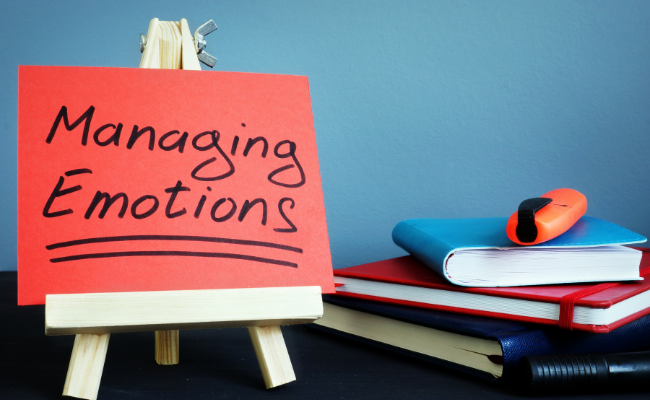Mindset and Distraction: Insights from Nir Eyal’s Indistractable
“The opposite of distraction is traction.”
– Nir Eyal
I had the chance to speak with Nir Eyal, an expert in the intersection of psychology, technology, and business. He's also the author of two best-selling books, How to Build Habit-Forming Products and Indistractable.
We discuss:
- Uncovering a deeper reason for distraction that Plato also explored in his time
- The mindset around distraction and the importance of believing in our agency
- The responsibility to control our emotions and reactions
Uncovering a deeper reason for distraction that Plato also explored in his time

Distraction is no stranger—we’ve all experienced it. This issue may be exacerbated by the invention of the smartphone and social media, but it goes deeper than that.
Nir sought to find out why, despite knowing what we need to do, we don’t do it. What is the root of distraction?
“I wasn't the first person to ask that question,” he says. “Plato—the Greek philosopher—2,500 years ago, asked that very same question. He called it akrasia, the tendency to do things against our better interests.”
If Plato had asked that question 2,500 years ago, it's clear that technology would not be the main reason people struggle with distraction.
“What I want to help people do is to empower themselves with the agency to choose their life. I don't think there's any skill more important than the ability to control your attention,” he continues.
What we give our attention to is what thrives—jobs, relationships, our health, etc. Our attention is our most precious currency.
“The problem is not that we don't know what to do, the problem is we don't know how to stop getting in our own way,” he says. “A lot of my research uncovered that a big part of the problem is our mindset around distraction and how likely we are to believe that it is something happening to us versus somebody who believes that this is something that they do have agency and control over.”
The mindset around distraction and the importance of believing in our agency

We are more powerful than technology if we believe we are. As Nir points out, about 3-5% of the population is pathologically addicted to their phone and technology, but for the majority, “we’re not addicted, we’re distracted.”
“If you ask people what's the opposite of distraction, most people will say it's focus,” Nir says. “But that's not true. The opposite of distraction is not focus. The opposite of distraction—if you look at the origin of the word—the opposite of distraction is traction.”
Looking even closer at these two words, we can see that they both end in action, showing that it is not something that happens to us but rather an act we perform, proof of our agency.
While traction pulls us towards something we want or need to do, distraction pulls us away from what we intend to do—our intentions, values, and goals.
As Dorothy Parker said, “The time you plan to waste is not wasted time.” If we are in control of our actions and recognize what they’re pulling us towards or away from, we are not wasting away the hours.
“We need to stop moralizing and medicalizing these perfectly fine behaviors,” Nir continues. “If you want to watch Netflix, play video games, or go on social media, why is that somehow morally inferior to watching some silly football game on TV? There's nothing wrong with either of them. Enjoy.”
Nir implores us to stop listening to the narrative that tells us these things are melting our brains when no evidence shows this is the case.
“As long as you use them on your schedule and according to your values, not someone else's,” he clarifies. We have the agency to withstand distraction and make choices in our habits—and sometimes that means a Netflix indulgence without guilt because that’s how we choose to spend that time.
“You can't say you got distracted unless you know what you got distracted from, which means unless you are retired or a child, you have to plan your day,” he explains. “Because that's the only way you know what is traction and what is distraction,”
The responsibility to control our emotions and reactions

When was the last time you tried to control the urge to sneeze and won? Probably not ever. We’ve all had a sneezing fit before and muscled through it. If it happened while we were driving, maybe we’d pull over. If it happened in the kitchen, perhaps we’d put the knife down. If we were with friends, we’d cover our noses with a tissue.
In other words, we controlled our reaction. It’s our responsibility to control our responses to emotions, events, stimulants, and so on—not the urge.
“The first step to becoming indistractable is understanding that 90 percent of our distractions begin from within,” Nir says. “Most people think about the external triggers, things in our outside environment that can lead towards distraction. But those are only 10 percent of the source of our distractions.”
What are internal triggers? Nir describes them as an uncomfortable emotional state—such as the urge to sneeze—that psychological itch; loneliness, boredom, fatigue, uncertainty, stress, anxiety. These are the source of the vast majority of our distractions.
“We are always going to get distracted unless we know what we are trying to escape when we turn to these distractions, and what we're trying to escape is almost always an uncomfortable, emotional feeling,” he continues.
The mastery of these internal triggers is what Nir hopes people who read his book walk away with—a quiverful of tools to help them respond in a mindful instead of mindless way to uncomfortable emotions.
Three ways to start mastering internal triggers:
- Reimagine the task
- Reimagine the trigger
- Reimagine your temperament
If we can change the story we’re telling ourselves, reimagine the lens we’re seeing with—capable vs helpless, mindful vs mindless, distracted vs addicted—we can change our responses and regain the agency that many journalists try to say we no longer hold due to the grip of technology. We are not slaves of distraction; we are free.
What are some of your internal triggers? Where have you struggled with distraction in your life?
Be sure to check out Nir’s full episode for further insight into being indistractable and learn more at NirandFar.com!








